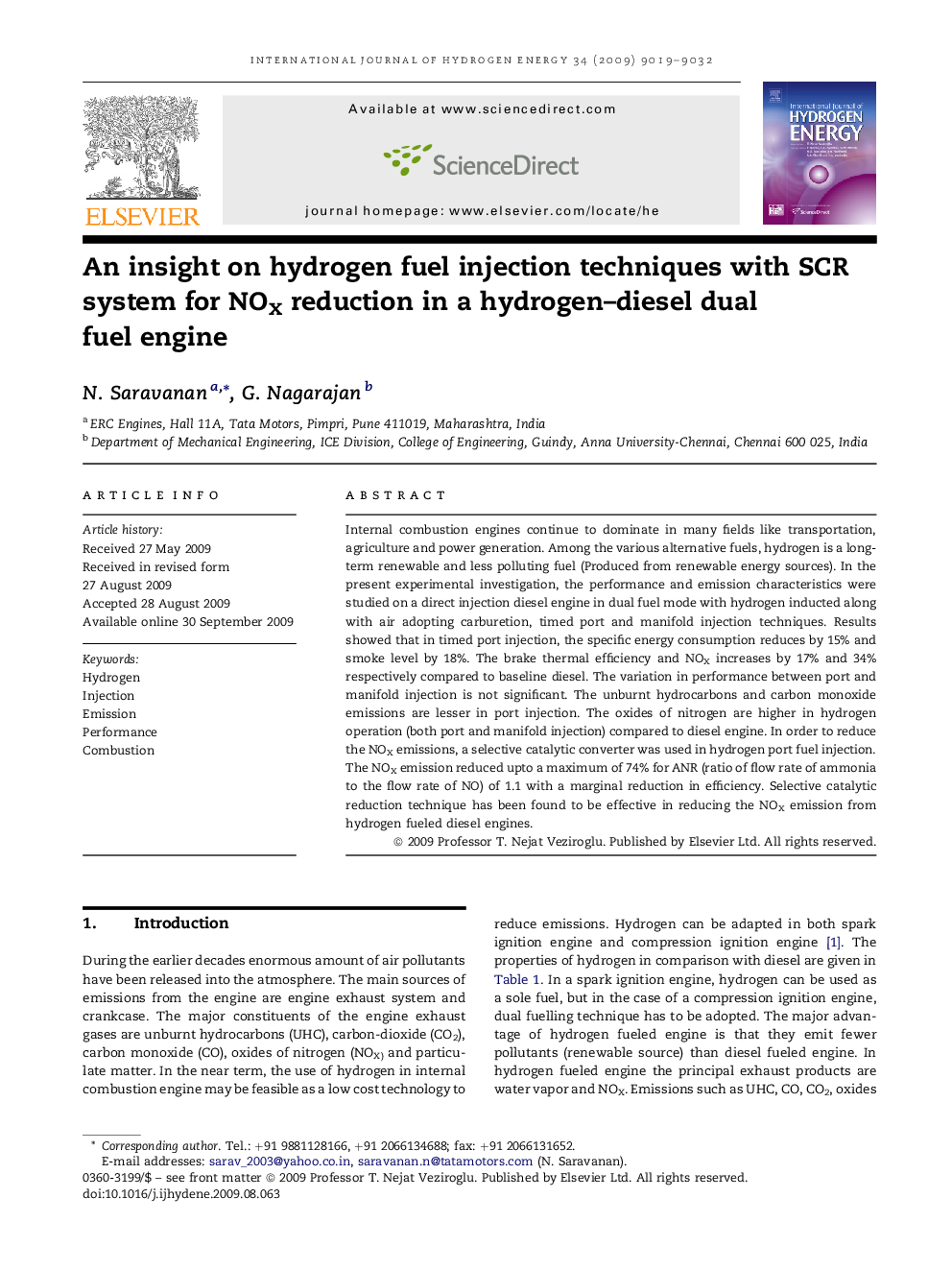| Article ID | Journal | Published Year | Pages | File Type |
|---|---|---|---|---|
| 1283035 | International Journal of Hydrogen Energy | 2009 | 14 Pages |
Internal combustion engines continue to dominate in many fields like transportation, agriculture and power generation. Among the various alternative fuels, hydrogen is a long-term renewable and less polluting fuel (Produced from renewable energy sources). In the present experimental investigation, the performance and emission characteristics were studied on a direct injection diesel engine in dual fuel mode with hydrogen inducted along with air adopting carburetion, timed port and manifold injection techniques. Results showed that in timed port injection, the specific energy consumption reduces by 15% and smoke level by 18%. The brake thermal efficiency and NOX increases by 17% and 34% respectively compared to baseline diesel. The variation in performance between port and manifold injection is not significant. The unburnt hydrocarbons and carbon monoxide emissions are lesser in port injection. The oxides of nitrogen are higher in hydrogen operation (both port and manifold injection) compared to diesel engine. In order to reduce the NOX emissions, a selective catalytic converter was used in hydrogen port fuel injection. The NOX emission reduced upto a maximum of 74% for ANR (ratio of flow rate of ammonia to the flow rate of NO) of 1.1 with a marginal reduction in efficiency. Selective catalytic reduction technique has been found to be effective in reducing the NOX emission from hydrogen fueled diesel engines.
